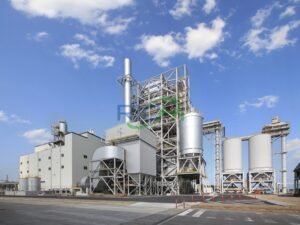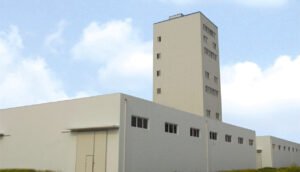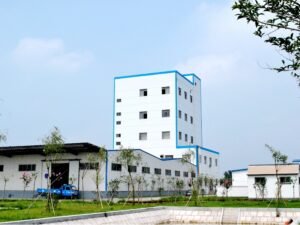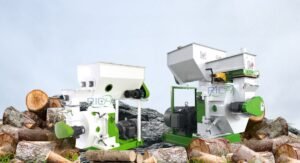
Introduction to Animal Feed Production Lines
An animal feed pellet production line is a systematic assembly of machinery designed to manufacture high-quality feed for livestock. Such lines play a crucial role in the agriculture industry, particularly in managing the nutritional requirements of various animals. As the demand for meat, dairy, and other animal products continues to escalate globally, the efficiency of the animal feed production line has become more vital than ever. These production lines facilitate a consistent output of feed that meets specific nutritional standards, ensuring the health and productivity of livestock.
The necessity of animal feed production lines can be attributed to several factors, including the growing livestock population and the increasing emphasis on agricultural sustainability. With advancements in technology, modern feed production processes have become more sophisticated, utilizing automated systems that enhance precision and efficiency. This evolution not only improves the quality of feed produced but also optimizes resource management, thus reducing waste and operational costs.
Moreover, as consumer preferences shift towards healthier, organic, and sustainably sourced animal products, the capabilities of animal feed production lines have adapted accordingly. Manufacturers are now integrating innovative technologies such as precision mixing and conditioning equipment, which contribute to the creation of customized feed formulations tailored to the specific needs of different animal species. This adaptability ensures that livestock receives the optimal nutrition required for growth, reproduction, and overall health.
In summary, animal feed production lines (https://www.richimanufacture.com/animal-feed-pellet-plant/) are essential for addressing the complexities of modern agriculture. They guarantee a reliable supply of high-quality feed while adapting to technological advancements and changing market demands. Such advancements not only enhance productivity but also contribute significantly to the sustainability of livestock farming practices.
Processes Involved in Animal Feed Production
The production of animal feed is a multifaceted process that involves several key steps, each contributing to the creation of a high-quality product. The initial process is the receiving of raw materials, which may include grains, protein sources, vitamins, and minerals. This step is crucial as the quality of raw materials directly impacts the nutritional value of the final feed. Adequate storage facilities and inspection procedures are essential to ensure that only the best ingredients are used.
Once the raw materials have been received, the next step is grinding. This process involves reducing the size of the ingredients to facilitate uniform mixing and improved digestibility for the animals. Proper grinding also aids in the consistency of the final feed, enhancing both its quality and its palatability.
The mixing process follows grinding and is vital for ensuring an even distribution of nutrients throughout the feed blend. It is essential that ingredients are mixed thoroughly to achieve a homogenous product. Automated mixing systems can improve efficiency and consistency in this stage, making it an integral part of the animal feed production line.
Pelleting represents a critical phase in the feed production process. This involves compressing the mixed feed into pellets, which not only aids in preserving the nutritional content but also improves feed handling and reduces waste. During pelleting, factors such as temperature, pressure, and conditioning time must be closely monitored, as they significantly influence the quality of the pellets produced. A well-executed pelleting process leads to a final product that is easier for animals to consume and digest.
After pelleting, the feed must be cooled to ensure that it reaches a safe temperature for storage and handling. The final step in this production line is packaging, which protects the feed from contamination and preserves its quality over time. Each of these processes, from receiving raw materials to packaging the final product, plays a fundamental role in the effective production of high-quality animal feed.
Determining Output and Customer Suitability
When assessing the requirements for an animal feed production line, it is imperative to establish the appropriate output capacity tailored to customer needs. The specific output must be aligned with operational scale—whether small, medium, or large—each having distinct characteristics and demands. A thorough understanding of these scales enables manufacturers and producers to optimize their operations effectively.
A small-scale operation may require a production line capable of generating a few hundred kilograms of animal feed per hour. This capacity suits niche farmers or those focusing on specialized feed for particular livestock. In contrast, medium-sized enterprises often necessitate a more robust production output, possibly ranging from several hundred to a few thousand kilograms per hour. Such operations typically serve local markets or cooperatives, providing a balance between quality and quantity.
Large-scale animal feed production lines are designed to produce thousands of kilograms per hour, catering to extensive operations or agricultural conglomerates that supply feed to multiple locations. These large capacities provide significant advantages, such as economies of scale, reducing the cost per unit of feed produced. However, the investment in such capacity requires careful forecasting of demand to avoid the pitfall of overproduction.
Determining the suitable output involves assessment of both market potential and existing customer bases. It is essential for companies to analyze their customer demographics and operational goals. Factors such as livestock type, region of operation, and intended distribution plays vital roles in influencing capacity decisions. Ultimately, the choice of machinery for an animal feed production line is heavily influenced by these output considerations, making it crucial for manufacturers to tailor their offerings accordingly to meet diverse client needs.
Choosing the Right Manufacturer: Spotlight on Richi Machinery
When selecting a manufacturer for an animal feed production line, several factors must be taken into consideration to ensure the best quality and efficiency in operations. One standout name in the industry is Richi Machinery, a leading pellet mill manufacturer based in China. With years of experience in the field, Richi has built a reputation for delivering high-quality machinery that caters to various needs in agricultural production.
The extensive experience of Richi Machinery in the animal feed sector positions them as a knowledgeable partner for businesses looking to optimize their production lines. Their expertise encompasses every aspect of the feed production process, from design and manufacturing to installation and maintenance. This comprehensive approach not only enhances productivity but also ensures that all safety and regulatory standards are met, providing manufacturers with peace of mind in their operations.
Quality is paramount when investing in an animal feed production line, and Richi Machinery does not compromise on this front. Utilizing advanced technology and superior materials, their machinery is renowned for its durability and efficiency. Clients can trust that their investments in Richi’s products will yield long-lasting benefits, minimizing downtime and maintenance costs over time.
Moreover, the company’s commitment to innovation sets it apart from competitors in the market. Richi Machinery continuously invests in research and development, enabling them to offer state-of-the-art solutions tailored to the evolving demands of the feed industry. This forward-thinking approach ensures that customers have access to cutting-edge products that enhance operational efficiency and product quality.
In essence, selecting Richi Machinery for an animal feed production line guarantees not only a reliable partner but also a promise of quality and innovation. Their established market presence, combined with a dedication to customer satisfaction, makes them an ideal choice for businesses looking to improve or expand their feed production capabilities. Investing in Richi Machinery is a step towards sustainable and effective animal feed production.






